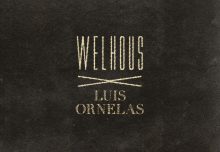
Zion is a powerfull, mythical and polysemic word..
The power and positivity derived and that derives from it, is what WELHOUS finds inspiring and thinks can be inspiring..
The word is first found in Samuel II, 5:7 dating to c.630–540 BCE according to modern scholarship.
It commonly referred to a specific mountain near Jerusalem (Mount Zion), on which stood a Jebusite fortress of the same name that was conquered by David and was named the City of David.
The term Tzion came to designate the area of Jerusalem where the fortress stood, and later became a metonym for Solomon’s Temple in Jerusalem, the city of Jerusalem and generally, the World to Come..
In Kabbalah the more esoteric reference is made to ‘Tzion’ being the spiritual point from which reality emerges..
The etymology of the word Zion is uncertain. Mentioned in the Bible in the Book of Samuel as the name of the Jebusite fortress conquered by King David, its origin likely predates the Israelites..
If Semitic, it may be derived from the Hebrew root ṣiyyôn (“castle”) or the Hebrew ṣiyya (“dry land”)..
A non-Semitic relationship to the Hurrian word šeya (“river” or “brook”) has also been suggested..
Sahyun (Arabic: صهيون, Ṣahyūn or Ṣihyūn) is the word for Zion in Arabic and Syriac. Drawing on biblical tradition, it is one of the names accorded to Jerusalem in Arabic and Islamic tradition. A valley called Wâdi Sahyûn (wadi being the Arabic for “valley”) seemingly preserves the name..
The Kaaba in Mecca was also called Sahyun or Zion by Muhammed, the prophet of Islam. Islamic scholarship sees many passages of the Bible that refer to the desert or eschatological Zion as references to the holy site of Mecca..
In the New Testament the Daughter of Zion is the bride of Christ, also known as the Church..
The Jewish longing for ‘Zion’, starting with the deportation and enslavement of Jews during the Babylonian captivity, was adopted as a metaphor by Christian Black slaves in the United States, and after the Civil War by black people who were still oppressed.
‘Zion’ symbolizes a longing by wandering peoples for a safe and free homeland..
‘Zion’ could be an actual place such as Ethiopia for Rastafarians or Israel for some of the Igbos in Nigeria. For others, it has taken on a more spiritual meaning—a safe spiritual homeland, like in heaven, or a kind of peace of mind in one’s present life..
In the Rastafari movement, “Zion” stands for a utopian place of unity, peace and freedom, as opposed to “Babylon”, the oppressing and exploiting system of the materialistic modern world and a place of evil. It proclaims ‘Zion’, as reference to Ethiopia, the original birthplace of humankind, and from the beginning of the movement calls to repatriation to ‘Zion’, the Promised Land and Heaven on Earth..
Thus, Zion..
7 / 11




